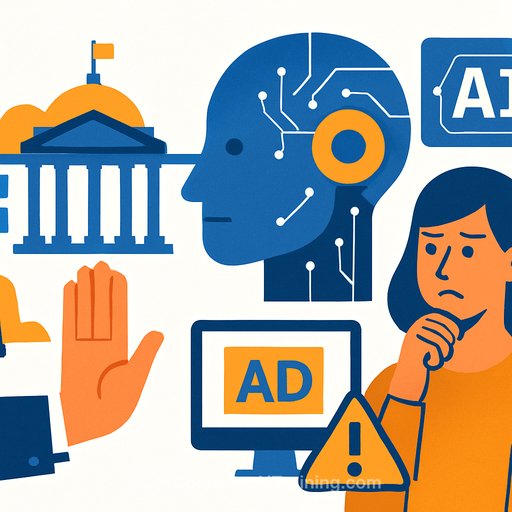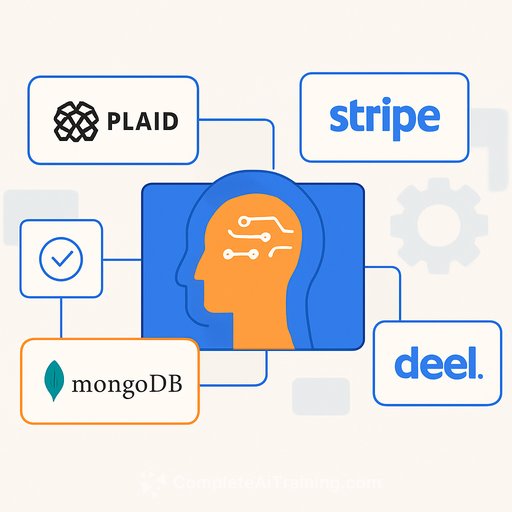White House AI Action Plan Ignites Debate Over Advertising Regulation
Generative AI has become a major focus, yet remains largely unregulated, especially in advertising. Recently, the White House introduced an AI action plan that many marketers interpret as a hands-off approach to regulation. The administration’s stated goal is to win the AI race and foster economic growth, national security, and human flourishing.
The action plan outlines key policies such as exporting American AI globally, expanding data centers, removing federal regulations that slow AI development, and awarding contracts to developers with unbiased AI models. While still a framework, it signals a federal push to accelerate AI progress by cutting bureaucratic hurdles.
Industry Reactions: Opportunity vs. Risk
Responses from marketers are mixed. Some see the plan as a chance to prioritize speed and innovation. Others worry about legal challenges involving intellectual property, data privacy, and copyright. Generative AI raises open questions about business goals and responsible use, many of which are still unsettled as marketers adapt on the fly.
Stephen Larkin, CMO at Erich & Kallman, notes this is an opportunity for advertising to lead in defining AI’s role in the industry. Existing rules from the Federal Trade Commission, Federal Communications Commission, and industry groups like the 4As, ANA, and IAB provide some boundaries. But federal regulation on digital data use remains incomplete.
Data Privacy and AI Regulation
Efforts to establish a national standard for data privacy, such as the American Data Privacy and Protection Act, have stalled and shifted responsibility to individual states. California’s Consumer Privacy Act (CCPA) is one example of state-level regulation that impacts data collection and AI use.
Generative AI Adoption Accelerates
According to a report by Forrester, the 4As, and Society of Digital Agencies, 75% of marketers now use generative AI, up from 64% last year. Brands like Coca-Cola and Popeye’s have begun testing AI-generated consumer ads publicly, signaling growing interest despite regulatory uncertainties.
Simon Poulton of Tinuiti highlights the difficulty of regulating AI without fully understanding it, cautioning against regulations that might cause more harm than good.
Political Climate and AI Policy
On the political front, President Donald Trump has pledged to repeal the 2023 executive order on AI, appealing to business leaders and tech giants like Meta’s Mark Zuckerberg and Tesla’s Elon Musk. The White House’s new plan appears consistent with this deregulatory stance.
Agency-Level AI Governance
With federal regulation limited, agencies may take the lead in setting AI boundaries for clients. Some agencies are already including AI usage policies in client requests for proposals (RFPs). An anonymous agency executive noted internal systems require client approval before AI tools are used in campaigns. Governance is essential to protect brands and consumers alike.
Existing Guardrails and Industry Standards
Some states, such as California and Utah, have enacted AI-specific consumer protection laws. The FTC bans fake and AI-generated online reviews. Industry groups also provide guidance: the ANA’s Ethics Code of Marketing Best Practices emphasizes transparency and human oversight, while the IAB’s Generative AI Playbook for Advertising offers practical advice for marketers.
Legal Battles Could Define AI’s Future
Courts may ultimately shape AI regulation. Recent lawsuits include Disney and Universal suing AI firm Midjourney for alleged plagiarism, and Reddit suing Anthropic over unauthorized data use. The New York Times also filed suit against OpenAI and Microsoft for copyright infringement in 2023.
Jason Sperling, CCO at Innocean, points out the government’s reluctance to regulate means courts will decide AI’s boundaries. His agency has avoided AI in consumer-facing work due to legal risks.
What Marketers Should Do Now
The AI genie is out of the bottle. Brands and agencies must figure out their own guardrails while watching legal developments closely. Many are cautiously experimenting, balancing innovation with risk.
For marketers seeking to build practical AI skills and stay updated on AI best practices, exploring focused training courses can provide a competitive edge. Visit Complete AI Training’s latest courses to learn more.
Your membership also unlocks:






